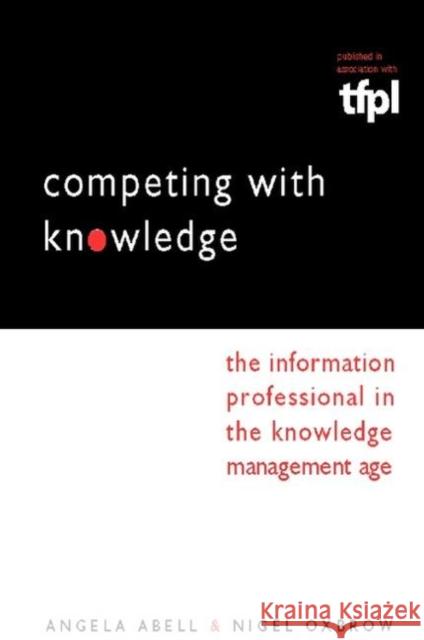Competing with Knowledge: The Information Professional in the Knowledge Management Age » książka
Competing with Knowledge: The Information Professional in the Knowledge Management Age
ISBN-13: 9781856045834 / Angielski / Miękka / 2006 / 288 str.
Knowledge Management (KM) is the first major management trend to identify information and its management as a crucial element in the success of an organization. It presents an opportunity for information professionals to have an impact on the organizations that employ them, and for employers to utilize those information management and exploitation skills in a creative and value-added way. For information professionals to take advantage of KM, they need to fully understand the concepts and benefits, the different approaches and techniques being implemented, and the new emerging roles in which information skills are increasingly significant. They need to ensure that business leaders recognize the value that information skills can bring, and they must have the attributes and mindset to thrive in a multi-skilled, multi-tasked team. This book aims to stimulate information professionals to explore the potential impact of KM on their work and career. It focuses on the role of the information professional and examines how to take advantage of KM to improve the effective application of their skills. Using case studies, the text considers: the knowledge context; creating knowledge-based environments in a range of sectors; and, the role of information management skills in KM. Covering such topics as the changing nature of competition, knowledge mapping, information auditing, total quality management and the value of intellectual capital, it emphasizes the core skills, competencies and new contexts that will empower the information professional in the KM age. It is essential reading not only for those seeking career development through KM but for all information professionals wondering exactly what it is and how it will affect their work. It will also be of great interest to all students of information and knowledge management.











